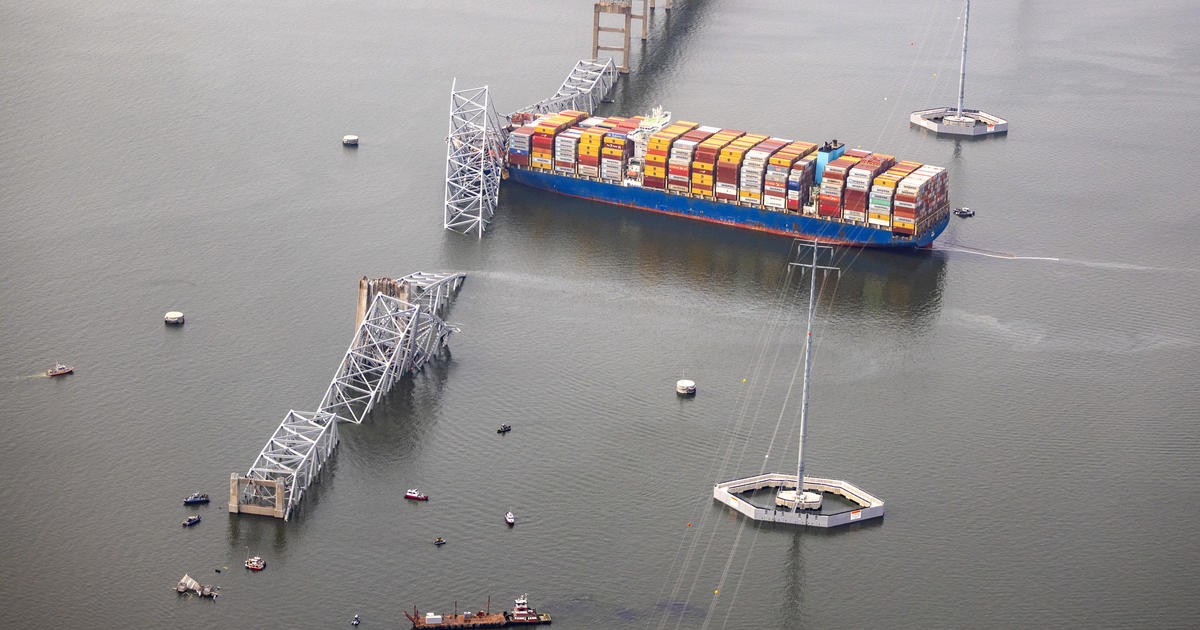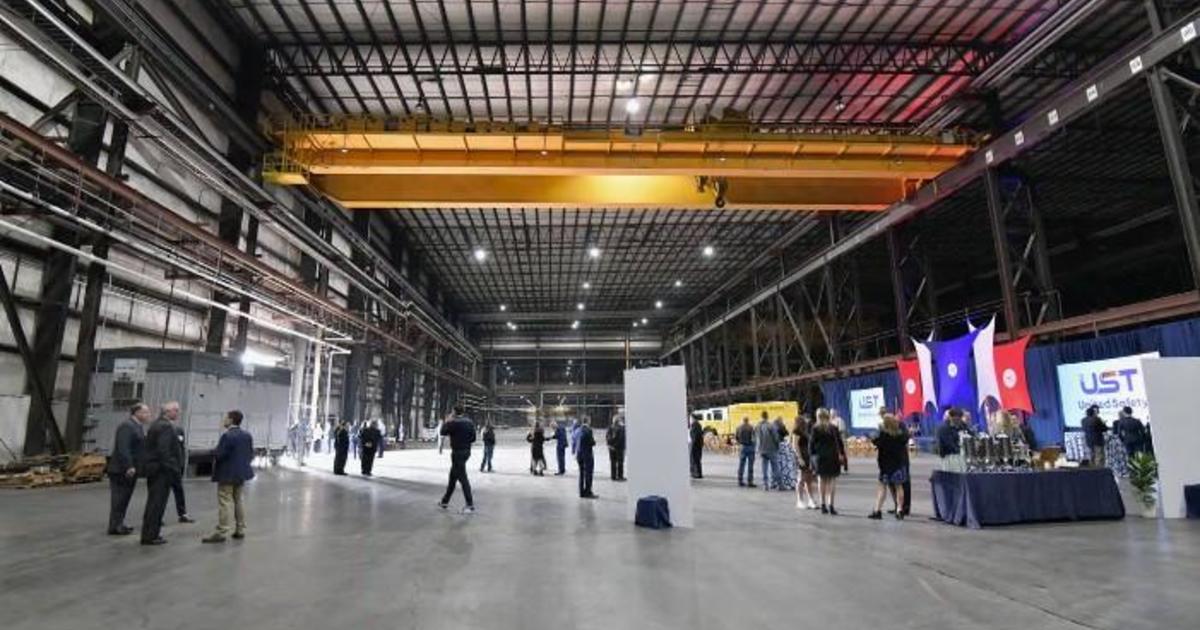Has Ocean Downs Paid Off For Community?
CHARLENE SHARPE
The Daily Times
BERLIN, Md. (AP) -- For years before slots were approved at Ocean Downs, Ocean City business owners spoke out against the establishment of a casino so close to their resort town.
They claimed a casino would take money away from the huge tourism industry at the beach and hurt the small businesses lining Coastal Highway.
Instead, a steady stream of revenue runs from the casino to Ocean City -- along with Berlin, Ocean Pines and Worcester County -- each month.
Between December 2011 and March 2014, Ocean City received $1.5 million in revenue from the slot machines at Ocean Downs.
"The revenue has certainly been helpful," Ocean City Mayor Rick Meehan said. "It's probably offset any revenue loss that might have occurred."
He said resort business owners and community members were initially worried the construction of a casino minutes outside Ocean City would have a negative financial impact on the resort town.
"The town was in opposition of the casino coming to this area," he said. "We didn't think it was the right place for it. We had a formula for success and didn't think we needed that."
In spite of resort officials' concerns, the casino does not appear to have had any effect at all on Ocean City, aside from the influx of funding.
"It's had very little impact on Ocean City," Meehan said, explaining he'd been worried about visitors' discretionary spending. "We were concerned it'd have an effect, but if it has it's been minimal."
As agreed when slots were approved in Maryland, casino revenues are broken down into a number of categories. The Maryland Education Trust Fund gets nearly half the profits, with the remainder going to casino operations (33 percent), local impact grants (5.5 percent), racetrack renewal (2.5 percent), the Maryland Lottery (1.75 percent) and minority businesses (1.5 percent).
In Worcester County, the 5.5 percent for local impact grants was further broken down -- Worcester County was to receive 60 percent of it, Ocean City 20 percent, Berlin 10 percent and Ocean Pines 10 percent.
Berlin Mayor Gee Williams said most residents in his town favored the idea of slots from the start. The mayor said he and council members were consistently supportive of the development of a casino at Ocean Downs, and recalls a public hearing where nearly all attendees wanted to see slots approved.
"The room was packed with people who thought it was a positive thing," he said, "mostly because of economic reasons. It's very difficult to create a year-round generator of jobs and employment."
Williams said at the time, he knew of plenty of residents that, every Sunday after church, got together with their friends into "little caravans" and headed up the road to Harrington's casino.
So why not let them spend their money in Worcester County?
According to the Maryland Lottery and Gaming Control Agency, the Casino at Ocean Downs has generated $161 million in revenue since it opened in January 2011. Close to $9 million of that has gone to local impact grants.
Casino officials could not be reached for comment.
That revenue has been used for a number of public projects. In Ocean City, funding from the casino has supplemented the town's street paving budget, which has suffered since highway user fees from the state were cut.
To keep its streets passable, Ocean City has used its $1.5 million in casino revenue to address paving. While that funding still amounts to less than what the town once received in highway user fees, it has helped, according to Meehan.
"It's less than we got, but it helps offset that loss of revenue," said Meehan, adding the town spent $2 million on its roads last year.
Ocean Pines, with more than 70 miles of roads, is also using casino revenue to address street paving. State highway user fee revenue that amounted to nearly $500,000 in 2008 has dropped to $31,000, according to Art Carmine, controller for the Ocean Pines Association.
"We're fortunate to have the resources provided by the casino as a stopgap to fill that dollar shortfall," said Bob Thompson, general manager of the Ocean Pines Association.
The homeowners association, which has received slightly more than $200,000 each of the past two years from the casino, spent just under $600,000 on road paving last year.
The other two local impact grant recipients -- Berlin and Worcester County -- have each used their slots revenue to pay down debt. According to Williams, the town of Berlin used its funding from the first three years to pay off the property the town purchased at the corner of Bay Street and U.S. 113.
"We paid that off two years ahead of schedule," he said.
With that land paid off, the town will be using its casino funds to pay for the design of a new police station planned for the site.
"We're in the process of determining what kind of police facility will meet the immediate and long-term needs of the community," Williams said. "Our goal is to do things with this money we wouldn't ordinarily be able to attempt."
Worcester County used the bulk of its casino funding -- $2 million of the $3.1 million it's received -- to pay down the debt accrued from the construction of Worcester Technical High School, according to Kim Moses, the county's public information officer.
So how has the casino affected the area beyond the grants? Minimally, according to local leaders.
Although casino opponents often cite crime and gambling addiction as potential problems, Worcester County officials say they haven't seen a jump in either.
"We have not seen an increase in gambling addiction," said Christina Purcell, behavioral health program manager for the Worcester County Health Department.
She said the health department screens all of its behavioral health clients for gambling addiction and offers individual, group and family therapy when it's needed. Health department staff also work closely with Worcester County's Gamblers Anonymous group, which meets every Thursday.
Ocean Pines, with a full-time population of about 15,000, sits just a few miles north of Ocean Downs on Maryland 589. Because it's the closest community to the casino, Ocean Pines Police Chief David Massey was originally concerned he'd see an increase in calls.
"It's been much better than I anticipated," he said. "We've had no problems with the casino whatsoever."
Thompson, the community's general manager, also said he hasn't seen any negative impact on the Pines since the casino was constructed, adding, "I can't really say it's changed anything."
While traffic along Maryland 589 is certainly a consideration for Ocean Pines, Thompson said the casino has not generated enough traffic to make a difference during the past three years. He does believe, however, that as the area between the casino and Ocean City becomes more developed, that could change.
Meehan said the casino has not meant much to Ocean City up until this point, but the future remains uncertain, particularly with the addition of table games coming to Ocean Downs. He said he always considered table games part of the equation, however, since casinos in the surrounding states have them.
He credits the zoning restrictions placed on the Casino at Ocean Downs, such as limited entertainment, with keeping the facility from becoming competition to Ocean City.
"It's another attraction, but it's not something that's monopolizing our visitors," he said. "To this point anyway. I hope that's the way it continues."
Worcester County casino revenue
2011: $674,372.16
2012: $1,299,180.86
2013: $1,364,845.98
Ocean Pines casino revenue
2011: $112,395.36
2012: $216,530.16
2013: $227,474.34
Berlin casino revenue
2011: $112,395.36
2012: $216,530.16
2013: $227,474.32
Ocean City casino revenue
2011: $224,790.72
2012: $433,060.27
2013: $454,948.64
(Copyright 2013 by The Associated Press. All Rights Reserved.)



